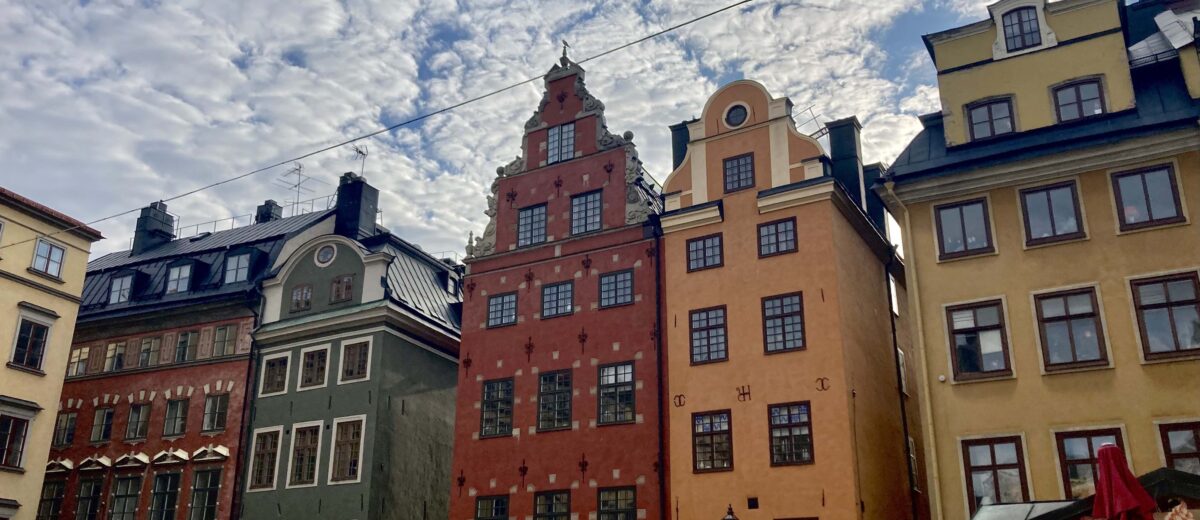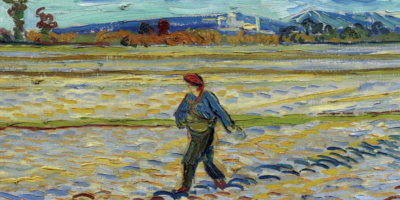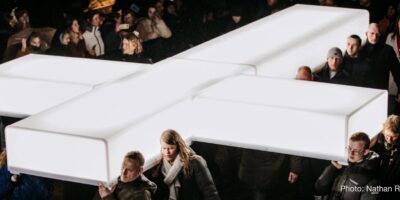What an intriguing city Stockholm is to explore!
This week I began to discover one of the best-preserved medieval districts in Europe, the Gamla Stan or Old Town, with its cobbled pedestrian streets, picturesque alleys strangely reminiscent of Malta’s Valletta, and its famous royal palace, one of the largest castles in the world. Gamla Stan is one of fourteen islands over which the city is spread, connected by 57 bridges. Or by many of the ferries plying their way around the harbour in water that is so clean you can drink it.
For Stockholm is one of the least polluted cities in Europe, earning itself the title of European Green Capital over a decade ago and still living up to its reputation. It is home to numerous historic churches which track the story of the Reformation and subsequent spiritual movements. It is also home to a tantalising array of museums dedicated to everything from ABBA, the world-famous pop group, to the legacy of the Vikings and the salvaged 17th-century warship Vasa preserved under water for 333 years. It boasts the world’s first open-air museum preserving an authentic picture of Sweden’s old peasant society. In the heart of the Old Town, is the Nobel Prize Museum named after the Swedish inventor and industrialist Alfred Nobel (1833-1896) who bequeathed his fortune to create a prize rewarding those who had ‘conferred the greatest benefit to humankind’ in fields of literature, natural sciences and peace.
Stockholm is also home to the Living History Forum promoting democracy, tolerance and human rights, and raising awareness about crimes against humanity committed by both Nazi and Communist regimes. The Stockholm Declaration is the founding document of the International Holocaust Remembrance Alliance, the outcome of an International Forum convened in Stockholm in 2000 whose attendees represented 46 governments.
Stockholm is also capital of the country presently chairing the European Council, and therefore is the location of the annual State of Europe Forum, convening Christians from a wide range of denominational backgrounds and disciplines to evaluate Europe’s current situation in the light of Robert Schuman’s vision for ‘a community of peoples deeply rooted in basic Christian values’.
Threats to peace and freedom
This year’s forum, will be held in three week’s time, Friday May 5 and Saturday May 6, the weekend prior to Europe Day (May 9), when in 1950 the French Foreign Minister, Robert Schuman, made a three-minute speech in which he catalysed the process of European integration and laid the foundation for the European Union. The Stockholm forum comes at an historic moment when Sweden is emerging from its longstanding neutrality stretching back to 1812, after a disastrous loss of territory to Russia during the Napoleonic wars.
The 2014 Russian annexation of Crimea and intervention in eastern Ukraine confirmed that Russia no longer honoured previously agreed national boundaries. Fears grew in Sweden and Finland that Russian military activities in the Baltic Sea could lead to an intervention into the Baltic states. Russia’s invasion of Ukraine has bolstered public support for Swedish membership in NATO to nearly 60% with less than 20% opposed.
As we gather this year to evaluate the external and internal threats to peace and freedom in Europe today, Stockholm’s qualifications to host the forum are proving to be most appropriate. Plenaries and seminars will address topics including creation care, democracy, religious freedom, the sanctity of life and human rights.
Just over ten years ago, the Nobel Peace Prize was presented to the European Union for contributing ‘to the advancement of peace and reconciliation, democracy and human rights in Europe’. Last week in this month’s Schuman Talk I interviewed Professor Henrik Syse, former vice-chair of the Norwegian Nobel Committee, about his involvement in choosing the peace prize winners. Speaking commitments in the US will prevent Dr Syse from being with us in Stockholm, but he will explore via video the ethics of the choice between pursing peace or victory in Ukraine.
Bucket list
As guide at the Occupation Museum in Riga, Latvia, Ineta Lansdowne deals with crimes against humanity committed by Communist regimes. Recently she has guided visiting presidents of Romania and Poland, and the American ambassador, through the museum and will offer a seminar on how hard-won freedoms can be lost through lack of vigilance.
Aware of the Stockholm Declaration, Professor Evert Van de Poll proposed a seminar on holocaust remembrance, which he hopes to co-lead with Swedish parliamentarian Mikael Oscarsson, the president of the association ‘The memory of the Holocaust’.
The attachments here tell more about the programme: the open Friday evening commemoration, in the historic Santa Clara Church, recalling the significance of Europe Day, May 9; and also the Saturday programme for registered participants (in the Betlehemskyrkan), of plenaries and seminars.
Stockholm really deserves to be on everyone’s bucket list.
Why not next month?
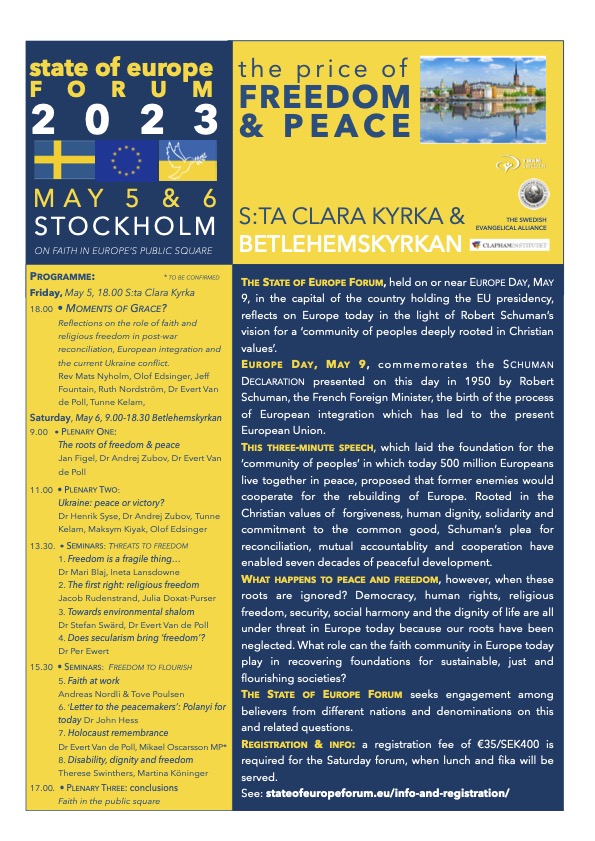
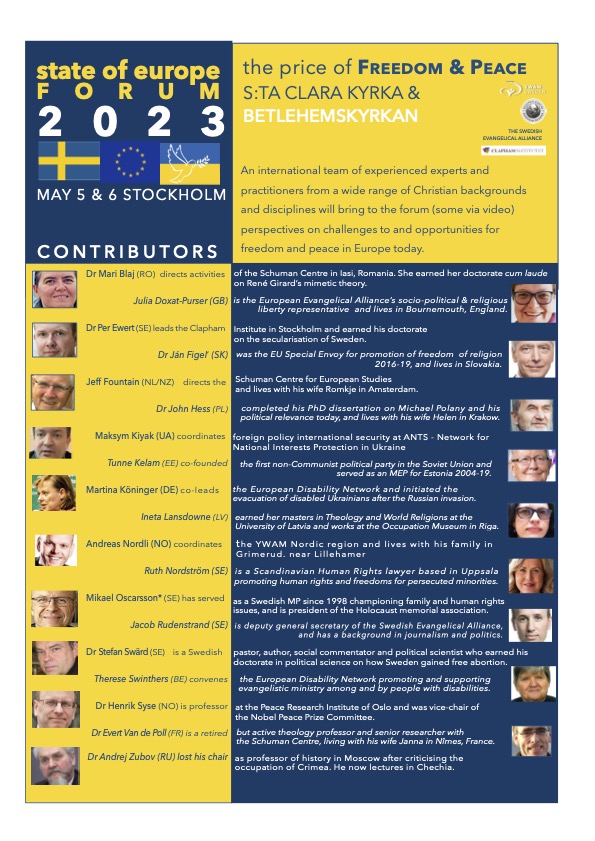
Till next week,

